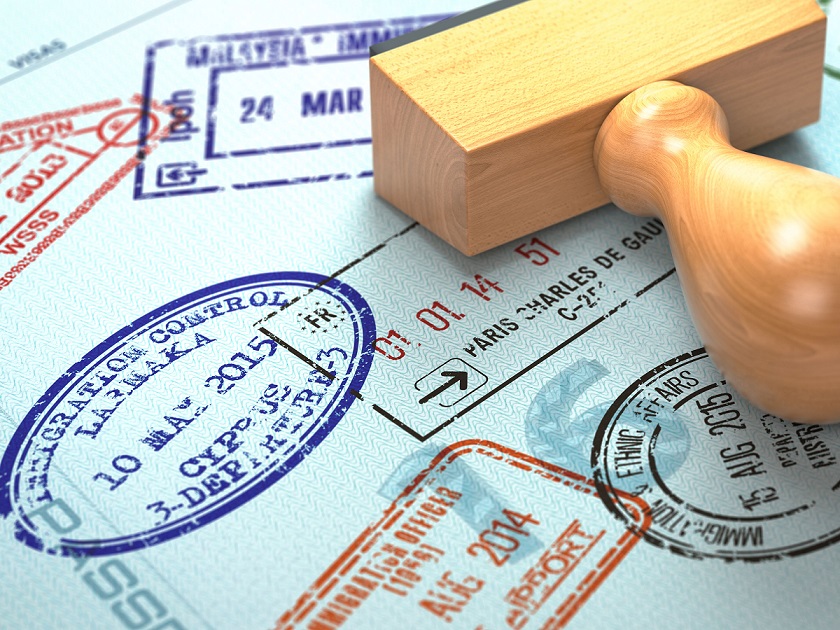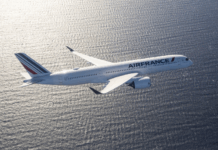South African passport holder? Great news: you can travel visa-free to 106 countries and territories, including Ireland, Réunion, Mauritius, Russia, Brazil and many African countries, such as Namibia, Zambia, Zimbabwe and Malawi.
But if you plan on travelling to the UK, the USA, Australia or anywhere in the European Union, you’ll need to obtain a visa.
Feeling anxious about the visa whens, whats and hows? Not to worry. We answer some of South African travellers’ most frequently asked questions about visas below.
How do I know if I need a visa?
There are various ways to determine if you’ll need a visa ahead of a trip. The best way is to visit the embassy website of the country in question.
“There are also websites such as www.iatatravelcentre.com that will provide you with guidance regarding the different visa types and who would need them, how to apply and how to get in touch with the relevant embassy or consulate,” comments Lynette Machiri, Customer Experience Team Leader at Flight Centre South Africa.
Alternatively, save yourself the trouble of uncovering this information on your own by booking your holiday through a travel agency. All travel agents are up to date with the necessary visa requirements to ensure stress-free, seamless travel anywhere in the world.
Where can I apply for a visa?
The embassy’s website, official government website or a trusted travel agency will supply you with up to date information on where and how to apply for a visa. In most cases, there will be an embassy and/or consulate for your destination country located in South Africa’s major cities (specifically Cape Town, Johannesburg and Durban).
You may need to travel to another city for a visa appointment if there is no Embassy or visa processing centre in your area.
Can I apply for a visa online or do I have to visit the embassy?
Some embassies allow you to complete and submit your visa application form online. However, you’ll usually have to visit a consulate or visa processing centre in person for your visa interview and/or to capture your biometric data. Certain countries, for example, Mozambique, have online eVisa portals where everything is processed electronically, but the visa is paid for on arrival in the country.
I’m a dual passport holder – which passport do I travel on?
It’s vital to travel with both valid passports on you.
“Since many non-South African passports offer more visa-free travel options for travellers, it’s usually best to exit South Africa and enter your destination country using your non-South African passport. However, you’ll need to show your South African passport to clear customs when returning home,” Lynette advises.
What documents do I need to bring with me to apply for a visa?
The documents required for a visa application vary according to your destination. As such, it’s important to check the information provided by the embassy or visa processing centre ahead of your appointment.
You might require the following:
- Your passport (with at least two or three blank visa pages depending on your destination)
- A completed and signed visa application form (obtained via the embassy website)
- Passport photos that meet the destination country’s requirements
- Information regarding travel purpose, i.e., holiday, work, study etc.
- Proof of travel and accommodation, such as flight details, accommodation bookings etc.
- Proof of funds, such as three months’ bank statements
- A letter of invitation if staying with a friend or relative
- Proof of employment
- Proof of travel insurance and the total value of your cover
How long does it take to get a visa?
Most visa applications are processed within 15 – 30 days. However, processing times may be longer if applying during peak periods. It’s always best practice to apply for your visa at least six weeks in advance to account for any delays.
“It is important to check visa application timeframes with the embassy or visa processing centre for the country you plan to visit, as they will provide guidance on when you should apply for your visa,” says Lynette.
How much does a visa cost?
The cost differs based on your destination country, but you’re generally looking at an application fee between R1,500 and R3,000.
Here’s a brief overview of what to expect:
- Schengen visa: €80 (equivalent to R1,695)*
- UK visa: £104 (equivalent to R2,533)*
- US visa: $160 (equivalent to R3,164)*
- Australian visa: AUD150 (equivalent to R1,930)*
For how long is a visa valid?
Short-stay tourist visas are usually valid for three to six months. Some are single-entry visas, whereas others allow for multiple entries during that period, such as the UK short-term visitor visa.
What should I do if my visa application is rejected?
In the event of a visa refusal, most embassies will provide contact details that you can use if you’d like to dispute the decision. The embassy will also usually supply a reason for the rejection. Common reasons for visa refusal are as follows:
- An incomplete application form
- Missing travel documents
- Incomplete travel details
- Passport issues
- Criminal history
- Unclear travel purpose
Will my application fee be refunded if my visa is refused?
No. The visa application fee is non-refundable. However, you may be covered for visa refusal if you have invested in travel insurance. Check your policy details for terms and conditions in this regard.
Which Schengen visa do I need to apply for if visiting more than one Schengen state?
The Schengen visa is a visa for travel in Europe. The type of Schengen visa for which you should apply when embarking on a multi-destination trip depends on the country of your longest stay. Lynette explains:
“If visiting Spain, France and Italy, but spending a week in Italy as opposed to three days in Spain and France, you’d need to apply for an Italian Schengen visa. If staying in each country for an equal amount of time, you’d need to apply for a Schengen visa for the country of your first port of entry.”
What’s the difference between an airside and a landside transit?
Airside transit refers to the movement of passengers connecting from one flight to another without leaving the international transit area. In other words, passengers who are in airside transit do not go through immigration or customs and do not leave the secure area of the airport.
Landside transit, on the other hand, refers to the movement of passengers who are connecting from one flight to another, but must go through immigration and customs in order to do so. This type of transit is typically used by passengers connecting between an international flight and a domestic flight, or vice versa. Landside transit passengers must pass through border control, pick up their baggage, and then check it in for their next flight before passing through security to access the departure gate for their next flight.
In some cases, you won’t require a transit visa for airside transit, but in some countries, such as the UK and the USA (unless eligible for the Visa Waiver Program), you’ll require a transit visa for both types of transit.
What is travel ‘double dipping’ and what should you look out for?
‘Double dipping’ when travelling refers to transiting twice while en-route to your destination. Flights that incorporate more than one layover are often significantly cheaper than those with just one layover, or direct flights.
“Unfortunately, what many travellers travelling on a South African passport don’t realise is that this ‘double dipping’ can end up being much more costly – and dramatically more inconvenient – in the long run. That’s because travellers will usually require a visa for both transits. As such, it’s important to do the research before booking those cheaper flights,” says Lynette.
The bottom line? Be prepared and ensure you have the right support along the way. A reputable travel agency could mean the difference between a restful, enjoyable trip and a complete logistical disaster. Happy (stress-free) travels!
*Pricing is based on the ROE at time of writing
FLIGHT CENTRE TRAVEL GROUP SOUTH AFRICA
Flight Centre Travel Group (Pty) Ltd (“FCTG”) in South Africa is wholly owned by Flight Centre Travel Group Limited – an Australian based international travel company listed on the Australian Stock Exchange, with a market cap of AU$4.53 billion and a current share price of AU$20.84 as of 26 May 2023. FCTG has two level 1 B-BBEE subsidiaries: FCTG Corporate and FCM Travel Solutions. FCTG consists of two leading brands: Flight Centre and Corporate Traveller. FCTG has been recognized as one of Deloitte’s Best Companies to Work for in South Africa for 14 consecutive years.
Article Provided




























